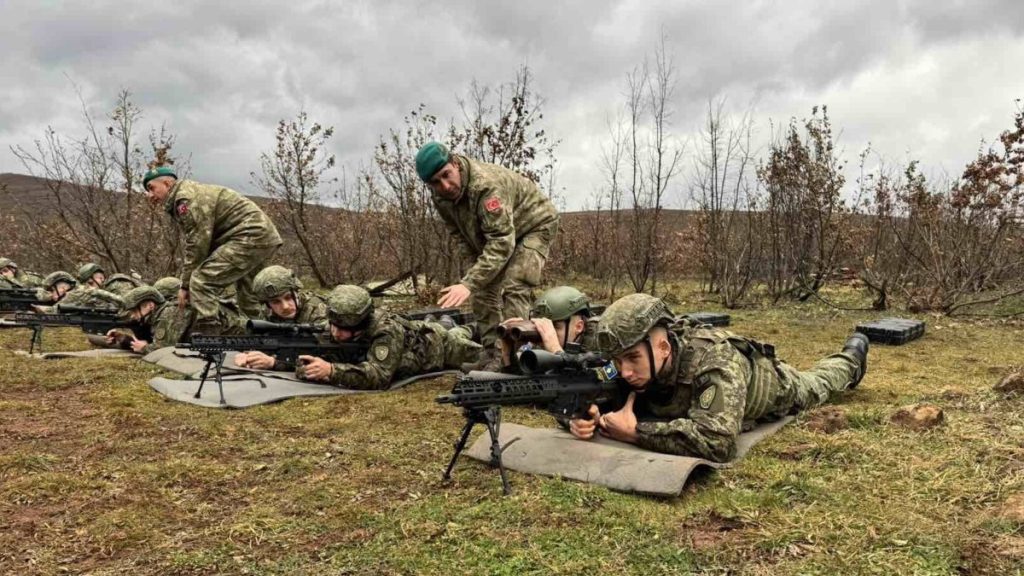Kosovo’s security forces receive assistance from the Turkish army deployed in the Balkan country. Turkish soldiers serving in NATO’s Kosovo Force (KFOR) provided Kosovo’s security personnel with sniper shooting training to improve their operational capabilities, according to an official statement issued on Saturday.
The Kosovo Security Force (KSF) statement said the training was conducted in collaboration with the Turkish Armed Forces (TSK) to improve the KSF’s readiness for crisis management operations, civil defense and emergency response. Established in 2009, the KSF began transitioning into the armed forces in 2018, a process expected to take 10 years.
Since 1999, Turkish troops have supported KFOR missions and contributed to the KSF’s development, with many Turkish-made weapons in the KSF’s inventory.
In December 2024, Kosovo’s government signed an agreement with Turkish defense company MKE to establish a factory for producing ammunition of various calibers, expected to begin operations soon.
The KFOR started its duty in Kosovo on June 12, 1999, following a U.N. Security Council decision to ensure security and stability. The mission has over 4,500 international military personnel from 27 countries, including 21 NATO members and six non-NATO partner countries. Türkiye took command of NATO’s KFOR on Oct. 9, 2023, the first time it has done so.
Among 27 NATO member countries and partners, Türkiye has the second-largest contingent in the KFOR, contributing at least 780 of its approximately 4,500 soldiers. Kosovo declared independence from Serbia in 2008 and was recognized by many countries, including Türkiye. But Belgrade has never recognized Kosovo and claims it is still part of Serbia. Türkiye maintains good relations with both Kosovo and Serbia.
On Saturday, NATO said it had strengthened its peacekeeping force in Kosovo amid mounting tensions ahead of parliamentary elections early next month. The Western military alliance said the 200 additional Italian soldiers would further buttress the KFOR force in the coming months. “Today, Italian troops from KFOR’s reserves completed their arrival … reinforcing KFOR’s presence in Kosovo,” a press release said. NATO said the newly arrived “Italian mechanized infantry brigade ‘Sassari,’ will carry out a range of activities, together with KFOR troops.” The force “will be deployed in response to any relevant developments in the security situation, including during the election period.”
Kosovo’s political parties are on the campaign trail before the Feb. 9 parliamentary election. On Wednesday, Kosovo authorities raided and closed 10 Belgrade-linked local government offices in ethnic Serb areas, the latest move to dismantle the so-called parallel system of social services and political offices financed by Serbia’s government inside Kosovo. In the past year, Kosovo authorities have effectively outlawed the Serbian dinar, closed banks that relied on the currency and shuttered post offices where pension payments could be cashed. Kosovo Serbs can no longer drive cars with Serbia plates and must have local driving licenses. Belgrade and representatives of the ethnic Serbs condemned the move, blaming the Kosovo government for exercising pressure on the Serb minority to prevent them from voting in the February election.


